When Helping Others Is a Life-Long Mission - An Interview with Gordon Moody CEO, Monica Shafaq
The journey to recovery begins with understanding, compassion, and tailored support—values that Gordon Moody’s CEO, Monica Shafaq, lives by every day. With over 25 years of experience in charity and support organizations, Monica brings not only expertise but also empathy to her role. In this interview with us at CasinoReviews, she shares her personal motivations, reflects on her first year at Gordon Moody, and discusses the obstacles and stigmas that many, particularly women, face when seeking help for gambling-related harm. Read on for one of our most honest and insightful interviews, to find out about the incredible work and dedicated team behind Gordon Moody.
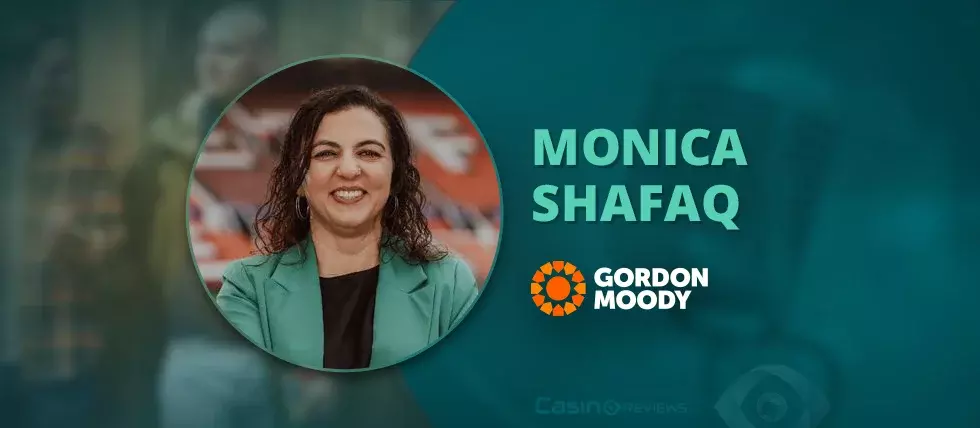
Thank you for being here, Monica. Looking through your bio and past work experience, it’s clear you've dedicated over 25 years to charity and support organizations, from housing associations to The Kaleidoscope Plus Group and now Gordon Moody. Helping people is at the roots of your career path, and it seems more like a life mission than just a job. Could you share what experiences or beliefs have inspired you to choose this path?
Thank you for having me. I guess my career journey has really been influenced by the values instilled in me by my parents and faith. Growing up, my parents always emphasised the importance of compassion, empathy, and community. They taught me that our responsibility to others doesn’t stop at those closest to us but extends to everyone, especially those who are struggling. These values, coupled with my faith, have shaped the way I view the world and approach my work.
I learned early on that helping others isn’t just a choice, it’s a responsibility and that’s what’s kept me committed to this path for so many years.
That being said, I didn’t have a clearly defined career path after graduating. Instead, I found myself naturally stepping into various roles, starting with working at an Asian Advice Centre and later managing an Asian Women’s Domestic Violence Refuge. This role, in particular, was incredibly eye-opening for me. It was my first real exposure to the profound difficulties and challenges that so many people sadly face in their lives.
It was here where I saw how basic needs, like secure housing, have a profound impact on a person’s ability to thrive which is when I took on various roles within the social housing sector, starting as a Housing Officer and then going on to be Head of Neighbourhood Services. That experience helped me understand how essential it is to meet people where they are, whether in terms of their living situation or their mental health. Working at The Kaleidoscope Plus Group, where I was involved in mental health support, further reinforced the importance of holistic care - addressing not just the immediate needs, but also the emotional, psychological, and social aspects of a person’s wellbeing.
At Gordon Moody, I’m continually inspired by the resilience of individuals facing gambling-related harm and it’s clear that transformation happens when people are given the right support, encouragement, and care.
I’ve seen how life can change dramatically when someone is treated with dignity, respect, and understanding, and that’s the approach I carry with me in my work.
Above all, it’s the values of kindness, service, and faith that have driven me throughout my career. I believe every person deserves a chance at a better life, and that belief is rooted in the lessons my parents taught me and the faith I hold. Helping others isn’t just about providing a service - it’s about walking alongside them on their journey and offering hope when it feels out of reach. This perspective is also why, for me, what I do never truly feels like work.
A few months ago, you celebrated your first 100 days at Gordon Moody, calling it a whirlwind of discovery and connection. Now, nearly a year in, how has your perspective evolved? Have there been any new insights or changes?
I feel even more deeply connected to the mission and the incredible people we serve. Initially, I was focused on understanding the systems and structures in place here at Gordon Moody, but through that process, it’s become evident how misunderstood gambling-related harm is and how complex and multifaceted the experiences of those affected by gambling harm can be. It’s not just about the harm itself but the layers of emotional, financial, and social impacts that people face. It’s become even more apparent that holistic approaches are essential - treating not only the gambling harm but also providing the emotional and psychological support needed for long-term recovery.
Unfortunately, however, gambling-related harm often doesn’t receive the attention or understanding it deserves. The politics around how services are funded and commissioned often overlook the needs of those who are most affected, which is really frustrating. Regardless of personal opinions on the issue, the reality is that people struggling with gambling harm need support, and if anything, the need for these services is only going to grow.
What’s especially concerning is the stigma surrounding gambling harm, which can prevent individuals from seeking help. We often hear it demonised in public discourse, but this only deepens the shame and isolation felt by those affected. Instead of focusing on the negative aspects or stigmatising the issue, I feel the wider sector should be focusing on providing the necessary support to help people reclaim and rebuild their lives. That’s why I’m so inspired by those who seek our support.
There’s a unique strength in people who are willing to confront their struggles and seek help. As I’ve grown into my role, I’ve become even more passionate about advocating for a shift in how gambling harm is viewed and how services are provided. The individuals we work with are incredibly resilient, and we need to create an eco-system where they feel empowered to seek help, rather than alienated or judged. Overall, the year has reaffirmed my belief in the power of empathy, connection, and tailored support. As I continue to learn and grow within Gordon Moody, I’m more committed than ever to ensuring that we provide services that are accessible, compassionate, and transformative. The need for support is urgent, and it’s time we all start recognising that.
You mentioned tailored support which solidifies that fact that addressing gambling harm isn't a one-size-fits-all approach, as different cultures, genders, age groups, and demographics each present unique challenges. What have been the most significant obstacles you've encountered in tailoring support for these diverse groups throughout your work at Gordon Moody?
We know our treatment programmes work - our research, data, and outcomes back that up and you only need to speak to someone who has been through our services to know how effective they are, so I’m confident that they are tailored to be person-centred and fit around the individual’s needs.
However, several factors can prevent people from seeking support in the first place which can lead to a less diverse group of people being able to receive our support. I’ve already mentioned how stigma can be a barrier to support, but this can be far more complex in certain communities.
In some cultures, there is a deep-rooted stigma associated with gambling, and individuals may feel ashamed or fearful of seeking help due to judgement from family, friends, or even faith leaders. Overcoming this barrier requires more than just creating a non-judgmental environment - it also means ensuring that we look like the communities we serve. Representation is key.
Our staff, messaging, and even images on our website must reflect our commitment to equality and diversity. That’s why we’ve been working hard on developing an Equality, Diversity, and Inclusion (EDI) strategy, ensuring that it is woven into every aspect of what we do.
Effective support goes beyond just being non-judgmental - it’s about making sure we’re inclusive in every way, from how we communicate, to who we employ. It’s not just about what we say, but how we show up in the world.
We’ve been looking at ourselves critically right from the point of initial contact through to aftercare and asking ourselves where there may be barriers or opportunities to further improve. We’ve even been reflecting on whether our name and brand, which are strong, may unintentionally be a barrier to treatment for certain individuals.
The latest report from the National Gambling Treatment Service, an organization closely connected to Gordon Moody, shows that people aged 30-34 are the most vulnerable to gambling harm, with twice as many men treated as women. Additionally, Gordon Moody has indicated that gambling addiction among women is at an all-time high. Could you share your thoughts on why gambling addiction might be rising among women and what factors make people in this age group particularly susceptible?
The rise in online gambling is certainly a significant factor in the increased gambling harm that we're seeing, particularly among women. Online platforms, even with gambling regulation in place, make gambling more accessible, with constant availability and the anonymity they offer. This shift is particularly relevant to women, as the barriers to access that once existed are now lower.
One factor that might make women more vulnerable to gambling harm is hormonal fluctuations. Women in the 30-34 age group could be dealing with significant life changes, such as pregnancy, childbirth, and the early stages of parenting. These transitions can bring about stress, feelings of overwhelm, and sleep deprivation, which in turn may make women more likely to turn to maladaptive coping strategies.
On a similar note, Gordon Moody's newest research project explored why women from ethnic minority groups are less likely to seek help for gambling-related harm. One finding was that these women often wait until situations become critical before seeking assistance. Did your research reveal any correlation between the cultural beliefs and traditions within these communities and the delay in seeking support?
Our study was only a small pilot, but we are looking to address these questions in a larger study into women from ethnic minorities who experience gambling harm.
Another finding from your research revealed that when women were ready to seek support, they often didn’t know where to turn. Do you see this as an informational gap that charities should address to make support resources more accessible to these groups? Additionally, have you identified specific pain points that Gordon Moody plans to focus on to improve access and awareness?
Yes, there is an informational gap when it comes to accessing treatment for gambling harm, and this is particularly pronounced among women from ethnic minority groups. Many women, especially those in underserved communities, may not even be aware that support is available or might feel disconnected from mainstream services due to cultural or linguistic barriers. To bridge this gap, we believe it's crucial that professionals like social prescribers in GP surgeries are well-informed about gambling harm services and feel confident referring individuals to treatment providers like Gordon Moody.
Our research has also shown that women feel social media advertising can play a pivotal role in raising awareness and making support services more accessible to a wider audience. However, it's not just about advertising; the content itself must be inclusive and reflective of the diverse communities that need support. For example, hearing the voices and personal experiences of women from different cultural backgrounds helps ensure the messaging resonates with those who might otherwise feel excluded or hesitant to seek help.
At Gordon Moody, we're actively working to address this need for inclusivity. One key initiative is the development of an accredited volunteering programme. This initiative empowers individuals with lived experience of gambling harm, as well as those who have been affected by someone else’s gambling behaviour, to share their stories of recovery. These volunteers will play a critical role in normalising the conversation around gambling harm and encouraging others, especially women, to seek help when they need it.
By amplifying the voices of those who have navigated their recovery journey, we can create a more welcoming and supportive environment for those who are struggling with gambling harm, while also addressing the specific needs of diverse communities.
More Interviews
 Interviews
Interviews
Sweepstakes Casinos: Thriving in an Ever-Changing Industry – Interview with Attorney Stephen C. Piepgrass
Feb 17, 2025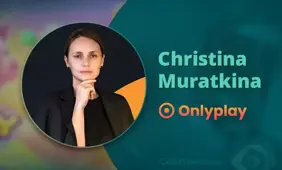 Interviews
Interviews
Charting a Path to Success: An Interview with Christina Muratkina, CEO of Onlyplay
Aug 21, 2024In the paper evaluating the effectiveness of Gordon Moody's first women’s residential program, it was noted that there is limited understanding of the factors influencing women’s engagement with gambling—a conclusion supported by data from the Gambling Commission and National Gambling Helpline. Do you think this gap exists because gambling was traditionally seen as a male activity, leading organizations to overlook women’s perspectives? Now that more women are experiencing gambling-related harm, do you feel there is a need for reactive, perhaps even drastic, measures to address this issue?
There has historically been far less research on women’s gambling habits because gambling was largely viewed as a male-dominated activity, leading to a lack of attention to women’s specific experiences. This has contributed to a gap in understanding the factors that influence women’s engagement with gambling and how it affects them. However, this is changing rapidly, with now more research into women’s gambling harm shedding light on their unique challenges.
While I wouldn’t say drastic measures are needed, there is a clear need to raise awareness and focus on encouraging women to seek help earlier. We already have effective programmes and tools to support women, the challenge lies in reaching those who may not yet recognise the extent of their harm or feel comfortable accessing support.
It’s about normalising the conversation around gambling harm among women and ensuring that services are accessible, inclusive, and tailored to their specific needs. Ultimately, it’s about ensuring that help is readily available and that women feel confident and supported in reaching out for assistance, whether that’s through residential programmes, community-based services, or helplines. The key is ensuring that women don’t just cope with their gambling behaviour, but are empowered to seek the help they need to address it.
You've clearly made addressing gambling harm among women a priority, as shown by Gordon Moody's last two research publications focusing on women in gambling. Do you plan to maintain this focus due to its urgency? Are there any other research projects centred on women and gambling currently in progress or planned for the future?
Yes – we are currently advertising for a PhD with the University of Birmingham which will look at gambling behaviours and cravings at different points in the menstrual cycle. Find more information about how to apply here.
Gordon Moody recently announced the opening of a new flagship residential treatment centre in Redditch. This isn’t the first treatment centre the organization has opened, as you already operate separate centres for men and women across the UK. However, what makes the Redditch centre the flagship for Gordon Moody? What sets it apart from the existing centres?
Gordon Moody House, our residential treatment centre in Redditch, marks an important development for our charity. While the treatment model remains consistent with the approach that has proven effective in our other centres, what sets Gordon Moody House apart is its ability to offer a mixed residential setting. This allows us to support a wider range of individuals with more diverse needs, for example, those from the LGBTQ+ community for whom our other single-sex centres may not be suitable. The mixed facility creates a more inclusive environment where everyone can receive treatment together, enhancing the sense of community and shared recovery.
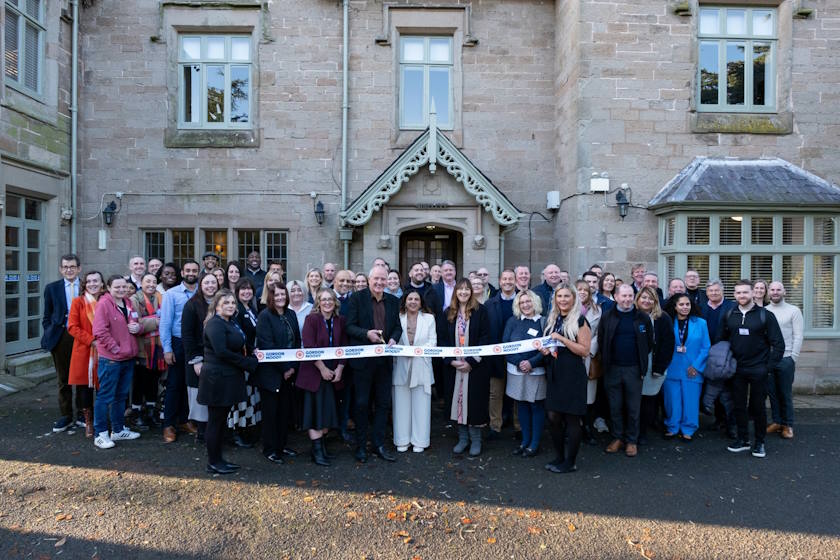
What specific innovations or features does the Redditch centre have and how does Gordon Moody plan to measure the impact and success of the tailored treatment programmes offered at this new facility?
Gordon Moody House has been thoughtfully designed to be fully accessible, ensuring that neurodiverse individuals and those with physical disabilities can comfortably engage in treatment. The centre offers accessible rooms along with quiet spaces for reflection and contemplation. The centre also has a multi-faith room so that we can cater for people's spiritual needs too.
Additionally, Gordon Moody House is set in beautiful grounds, allowing us to incorporate an even broader range of wellbeing activities into our treatment programmes. The serene and natural environment provides an ideal backdrop for activities such as outdoor therapy sessions, mindfulness practices, and physical wellness exercises. These additions are integral to our holistic approach to recovery, helping individuals not only address their gambling addiction but also focus on their overall mental, emotional, and physical health.
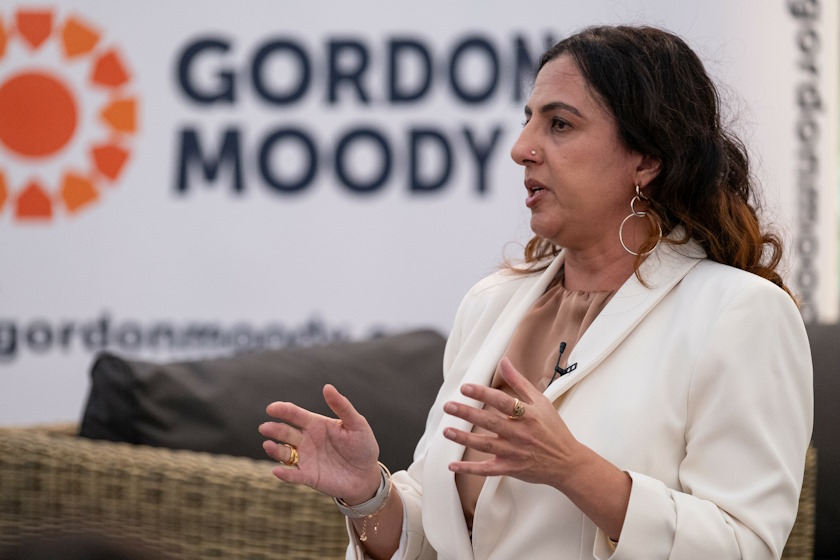
How does a charity organization like Gordon Moody measure success? What specific goals and targets do you, as a company, aim to achieve?
We measure success not only by the outcomes of the individuals we support but also by the broader impact we have on the gambling sector. Our primary goal is to empower individuals to reclaim and rebuild their lives free from gambling-related harm. Success, for us, means seeing people move from a place of harm to a place of recovery, achieving long-term positive change and reintegration into their communities.
We track progress through a combination of individual recovery outcomes, including reductions in gambling behaviour, improvements in mental health, and enhanced overall wellbeing.
Additionally, we measure success through engagement with our services, ensuring that more people are aware of and able to access the support they need. This involves tracking key metrics such as the number of applications, individuals accessing treatment, the effectiveness of our outreach campaigns, and the diversity of individuals we serve, ensuring we reach underrepresented groups.
We also have specific targets in terms of expanding access to support. This includes increasing the number of people receiving residential treatment, enhancing our online and community support services, and ensuring that our programmes are accessible and inclusive for people from all walks of life. We aim to strengthen our position as a leading provider of gambling-related treatment and to continue advocating for the importance of addressing gambling harm within public policy.
Ultimately, success at Gordon Moody is about making a tangible difference in the lives of those affected by gambling harm, while continuing to innovate and ensure that our services are responsive, accessible, and impactful.
Thirty per cent of the people who come through our doors have considered suicide, and on leaving no one feels this way. We know that we save lives, and are immensely proud of that.
As 2024 comes to a close, what would you say has been your biggest personal achievement since joining Gordon Moody? And what motivates you most to continue making an impact into 2025?
My biggest personal achievement since joining Gordon Moody has been the opportunity to contribute to the growth and evolution of our services, especially with the opening of Gordon Moody House in Redditch.
Being part of a project that will have such a significant impact on our ability to support individuals affected by gambling harm has been incredibly rewarding. It’s a testament to the hard work and dedication of everyone at Gordon Moody, and I’m proud to be part of a team that is driving such meaningful change.
What motivates me most to continue making an impact into 2025 is the knowledge that we are truly changing lives. The work we do at Gordon Moody is incredibly impactful. The progress our service users make in overcoming gambling harm and seeing them reclaim control of their lives is truly inspiring. However, this wouldn’t be possible without the fantastic team at Gordon Moody. The collaborative spirit, passion, and commitment of my colleagues make all the difference in delivering the support and care our service users need. It’s the collective effort of everyone at Gordon Moody that keeps me motivated to continue pushing for positive change in the year ahead.
We thank Monica Shafaq for contributing to our interviews with industry experts and for sharing her leadership journey at Gordon Moody, which highlights the power of empathy, inclusivity, and innovation in tackling gambling-related harm and addiction. By breaking down barriers, challenging stigmas, and ensuring tailored support, Monica and Gordon Moody are making life-changing impacts. As the conversation around gambling harm evolves, Gordon Moody continues to set a benchmark for accessible care for those in need.
RELATED TOPICS: Interviews
Most Read
Must Read
 Interviews
Interviews
Sweepstakes Casinos: Thriving in an Ever-Changing Industry – Interview with Attorney Stephen C. Piepgrass
Feb 17, 2025 Interviews
Interviews

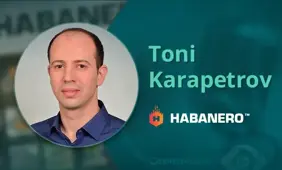





Review this New Post
Leave a Comment
User Comments
Comments for When Helping Others is a Life-Long Mission - An Interview with Gordon Moody CEO, Monica Shafaq